How Often To Post New Recipes On Food Blog

Wondering how to grow a successful food blog? Want to turn food blogging into your job? Well today you're going to learn from successful food bloggers who are whisking their way to full time income and sharing tips to grow a successful food blog. This article dives into the question of why do food bloggers fail and how to make it as a food blogger. Because, believe it or not, food blogging is a "real job" earning steady full-time-job income for a lot of website owners.
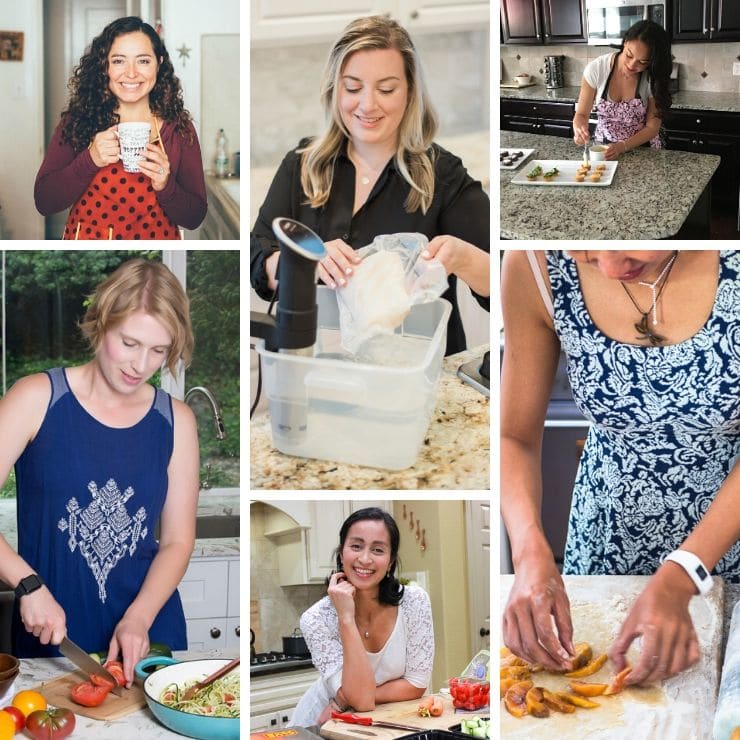
Why talk about why food bloggers fail?
Most food bloggers I know started blogging because they love at least most of the following: food, cooking, photographing, writing, and social media. There's so much more that goes into food blogging, however and once food bloggers start dedicating 10-15 hours per post, many get the itch to start moving from food blogging as a side hustle, to food blogging as a career. To turn food blogging into a career, you'll need to know why food bloggers fail, so you can avoid those food blog mistakes.
So, let's get right into it with advice from successful food bloggers!
Thinking about food blogging as a career? Jessica Randhawa from The Forked Spoon shares tips about starting a blog as a stay at home mom.
Why food blogs fail
- Not treating food blogging as a business
- Trying to do everything at once
- Lacking consistency in posts and food blog niche topics
- Expecting overnight success
- Unorganized work flows
Top tips for food blogs in 2021
- Allow your food blog time (often years) to grow
- Don't expect overnight success
- Come up with a solid workflow to publish each post
- Own your food niche
- Have fun with social media
There is just so much more to cover than the lists above.
So check out below to hear from expert food bloggers below as they go into detail on how to run a successful food blog in 2021.
Meet yourself where you are and be kinder to yourself
Once I started saying things like, "It's ok to not do this right now if it's not strengthening," or "You aren't likely to work on this type of tasks after your full-time job, that's ok. Let's shift so you have time to do it in the mornings," I was able to sustain my business over the long haul.
– Adria from Emerald Palate , who has been blogging for 10 years and is very familiar with all the ups and downs of blogging, including failures and almost quitting food blogging
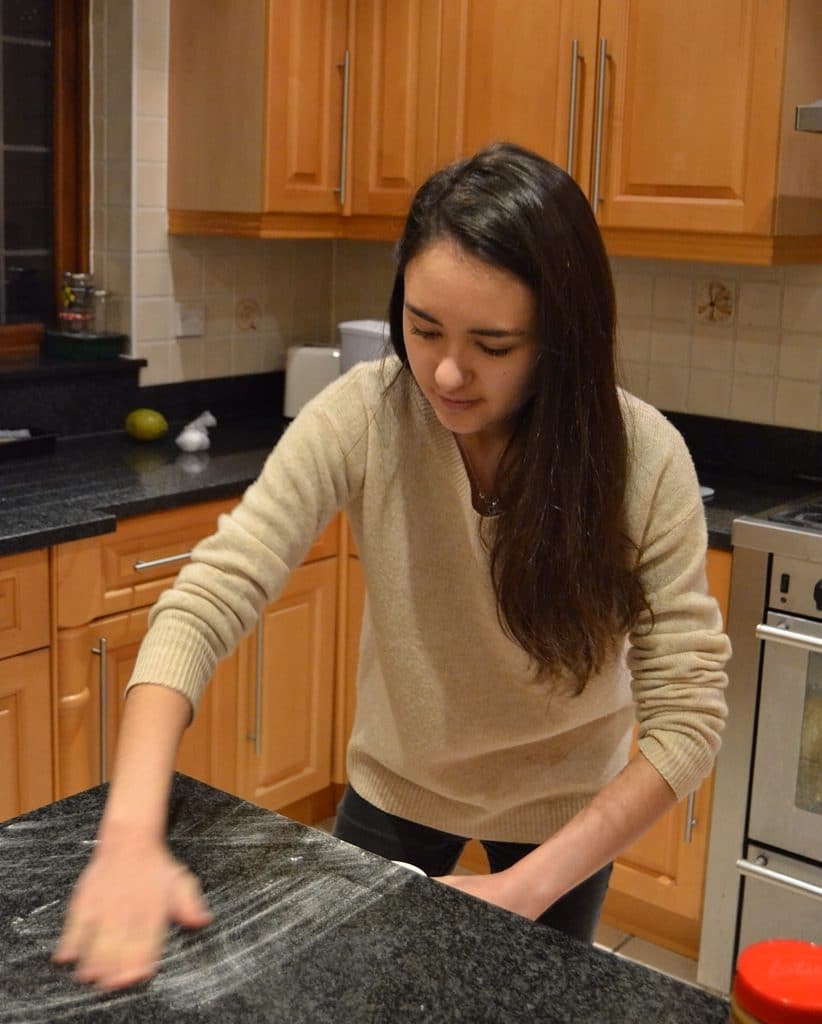
Understand how much work it is – and embrace it!
I think the main reason why food blogs fail is because a lot of people (my past self included!) don't realize just how much work you need to put in before you will see any reward. You can only make your food blog into a full-time job that you earn a decent amount of income from if you treat it like that from the very beginning, even if you aren't making any money and nobody is visiting your blog at that point.
A lot of people start a blog and wait until they gain enough traction to justify spending a lot of time and effort on it. But you won't be able to gain any traction unless you spend the time and effort first. And it can be very tempting to quit if you aren't gaining any traction.
To combat this happening, you need to post consistently and make sure your content (recipes, photos, videos, writing style etc) is the highest quality it can be, even if you don't have much of an audience yet. Because you won't be able to attract an audience without this. There are already so many great food blogs out there, so it will be impossible for your new one to stand out otherwise.
– Rhian from Rhian's Recipes , a vegan food blog established in 2014
Own your food niche
A big stumbling block for bloggers is their inability to find an ownable niche. Many new writers want to become thought leaders on incredibly broad topics, which pits them against countless competitors with bigger existing audiences and consequent high search presence. When I decided I wanted to write about food, I quickly found that even just writing about newly released snack foods would require great luck and time investment—both of which can lead to fruitless frustration.
So instead, I picked a single type of food that wasn't being covered in great detail—a type of food that I discovered has a micro-culture in need of a mouthpiece to help articulate its voice and tone. Once a blogger finds something specific, with an underserved community they write passionately for, it's much easier to build a following. Since adjacent blogs don't see you as direct competition, they're more likely to engage with your content, sharing and backlinking to give an underdog topic a slice of the spotlight.
– Dan Goubert from the breakfast cereal blog, Cerealously , founded in 2014
Most niches or topics have become outrageously competitive and saturated, including food, fitness, and finance. Many bloggers make the mistake of jumping into these areas with no topic expertise or competitive advantage, and their content only adds to the noise. Look to become a big player in a smaller niche or bring a unique spin to one of the bigger ones, but don't just be a copycat.
– Evan Porter, a writer and fitness blogger over at The Trusty Spotter
Consistency is key
If there is one problem that causes most food blogs to fail is consistency. If you were blogging twice a week, then you need to plan a content calendar and make sure you stick to it. You can't just leave it for 6 months, come back to it and expect your readers, your social media following and SEO to like it.
Those that don't excel in the blogging business as a whole i.e. not used to running a business and struggle with the day to day management of it, still have a chance. They just need to be consistent in what they do. If you think of any successful blogger that you know, they are always consistent and they are always working on the next blog post and making sure each blog post is promoted.
I look at the friends I made when I started my food blog RecipeThis.com in 2015 and many of the first friends I made have now quit blogging. It is a shame to see that, but what they all have in common is that they are not consistent and get bored with the blogging business they have created. – Samantha Milner from RecipeThis.com , a food blog that's grown to 8 million page views a year

Seriously, learn how to be consistent with food blogging!
It is so important to regularly show up on your blog as well as emailing your email list when you have a new blog post. This helps to build trust with your audience and they begin to know when you are going to provide content each week. When you do this regularly, you become known as the go-to expert for your audience and they are more likely to view you as an authority as well as come to you with any questions they may have. Conversely, when you do not show up consistently, people stop showing up to your site and traffic dwindles.
– Renata Trebing from the healthy food blog NourishwithRenata.com , started in 2017
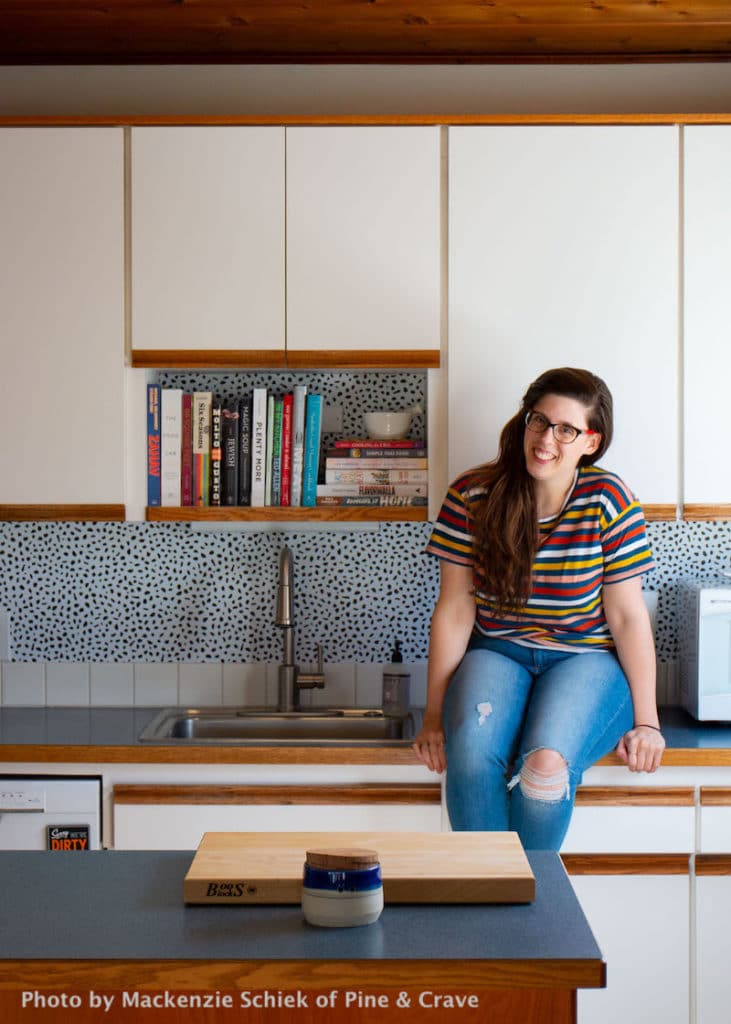
Evolve your food blog over time
The other thing I did was pivot when I realized the source of my demotivation: I wasn't as passionate about fashion anymore, but had always been passionate about food and travel (my blog started as a street style blog). Bloggers tend to start their blog when they have a full-time job, so loving what you're doing so it doesn't feel like work is essential to success.
Sometimes it takes rebranding or pivoting your focus to ensure what you're writing about always excites you. Pivoting can also be helpful in business growth too, if you're doing it for reasons to stand out from the competition or to put your limited time and energy into tasks that will make you money.
– Adria from Emerald Palate
Don't give up too early
Building a successful blog takes a lot of time. Often, you won't even BEGIN to see positive traction until after 6-12 months of hard work. A lot of people get discouraged a few months in and quit. The best way to combat this is to set expectations early on and have a production-oriented mindset — you'll do X amount of work each day/week/month and focus on building the site with no expectations of seeing traffic or profit for a long time.
– Evan Porter from The Trusty Spotter
There are no quick wins even if blogging is advertised as easy money. There are a lot of things that you might not know before starting. For example, even if you love cooking, baking and recipe development, that is not all you need to spend time on. You need to be a social media manager, a photographer, a webmaster, a copywriter, a marketer at the same time. You need to work hard to provide quality content on a regular basis that you promote via various channels. Most bloggers can't even monetise within the first year, but there are sure expenses to account for. That being said the food blogging community is awesome. We help each other and learn from each other every day. If you can persevere and face these challenges at the beginning, you can become the part of the most positive and supporting online community I have ever come across.
– Emese from vegan and gluten-free recipe blog, My Pure Plants , founded in 2018
Have a content calendar to plan recipe posts
I would recommend any blogger, regardless of niche, has a content calendar. It doesn't have to be fancy, it doesn't have to be colour coded, it is just there to remind you what to blog on each day and so that you can schedule and plan your content in advance. It also allows you to write content early for example so you can go on vacation and then you know what needs promoting and when.
It is also an excellent way to have a theme on your blog. For example if you are a budget blogger January can be about printables showing people to save money. Or as a food blogger I once did a soup theme for January.
At the end of the day content is king and by being consistent and getting as much quality content out a week as you can manage is what will grow your blog, its when you stop doing this that your blog is likely to fail.
– Samantha Milner from RecipeThis.com
Don't forget to market your food blog!
Once you create content for your blog, it is vital to share that content so that people know they should visit your site. Marketing can be anything from social media posts to emailing your list to telling people about it face to face! But if you never tell people about your site, you will never get visitors.
– Renata Trebing from NourishwithRenata.com
Remember: food blogging is a business, not a hobby
If you want to earn money from your blog, it needs to be operated like a business. Pretty quickly, you should figure out what types of content and promotional activities are actually bringing you a positive ROI on your time or money spent, and cut out the ones that don't. Lots of bloggers feel like they're spending an enormous amount of time on their blog for little results, which can lead to them throwing in the towel too soon.
– Evan Porter from The Trusty Spotter

encourages new bloggers with advice to monetize to motivate
Monetize to help motivate!
Personally, I find that bloggers tend to fail and quit when they do not receive a source of income with their articles. It is hard to sustain a passion when you still need money to survive. As such, many – myself included – tend to monetise and find sponsorships to keep our blogs alive. This is especially so in Singapore's blogging scene, where all the well-known, successful bloggers tend to partner with brands. This can be easily done by partnering with a digital agency that focuses on influential and affiliate marketing.
– Katie from Eatbook , launched in 2013
Keep learning to stay relevant
Food blogging is a very demanding niche, and readers want the most beautiful food photos (and now videos) to keep them coming back for more. Once I obtained a good DSLR camera, and taught myself video editing, my traffic (and readership) increased.
– Judy Kahansky from You Can Live Rich On Less
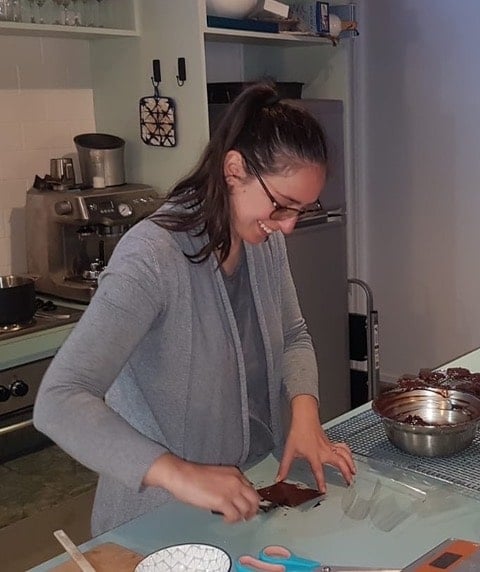
It takes time to find your "people" – for every food blog!
Most people are too impatient. They expect to see results straight away and quit within the first few months if they don't see an instant growth.
Bloggers don't understand who their target audience is and want, and/or their content is too broad. Nowadays, it seems like the best way to succeed as a Food Blogger is to have a specific Niche you become known for. With SEO especially, but also to bond with your readers, you want to become an « Expert » on a specific topic (a special diet, a specific cuisine,…).
The readers will always trust you on a subject they know you for. For example, if I only post easy baking recipes, it will really confuse my readers (and Google) if all the sudden, I post an Instant Pot Curry recipe.
And that's when it comes back to the original reason mentioned on why food bloggers fail: it takes a long time to figure out who your audience is and what your specific niche is, and many people will have quit before they reach that point.
The best advice to overcome this is: everything about blogging can be learned as we go (the technical side, SEO, Social Media Marketing etc,…) but the only thing you want to figure out before you start (or as soon as you can) is: what will you write about exactly? What is your voice? What will make your blog different from any other existing blog? The earlier you figure it out, the best chances you have to create a following and an audience interested in what you have to say!
– Sylvie from A Baking Journey , launched in 2017
Listen to your readers
If your audience asks you a question, answer them! A sure fire way for people to stop showing up to your site, is to ignore their questions.
– Renata Trebing from NourishwithRenata.com
Realize it isn't easy to food blog!
I think that a lot of people get into blogging thinking it's going to be easy, and the reality is that it's one of the toughest jobs and most competitive markets out there. Sure you can work from home, don't need to wear real pants, and the hours are flexible, but you have to work ALL THE TIME. It's relentless self-promotion across a variety of platforms, learning SEO, copywriting, recipe development, photography, videography, and more.
I've been blogging for nearly 10 years now, which has required a very thick skin and a sense of persistence that at times has been beyond rational. Today there are a lot more resources for bloggers than there were 10 years ago; forums and courses and services, which makes it easier to do things right, but it's still insanely competitive. If someone starts out thinking it'll be easy they can quickly become discouraged and give up, and for others they try to do too much and eventually burn out. Long term success requires grit, determination, a sense of community, and a little bit of insanity.
– Katie Trant from Hey Nutrition Lady , founded in 2010
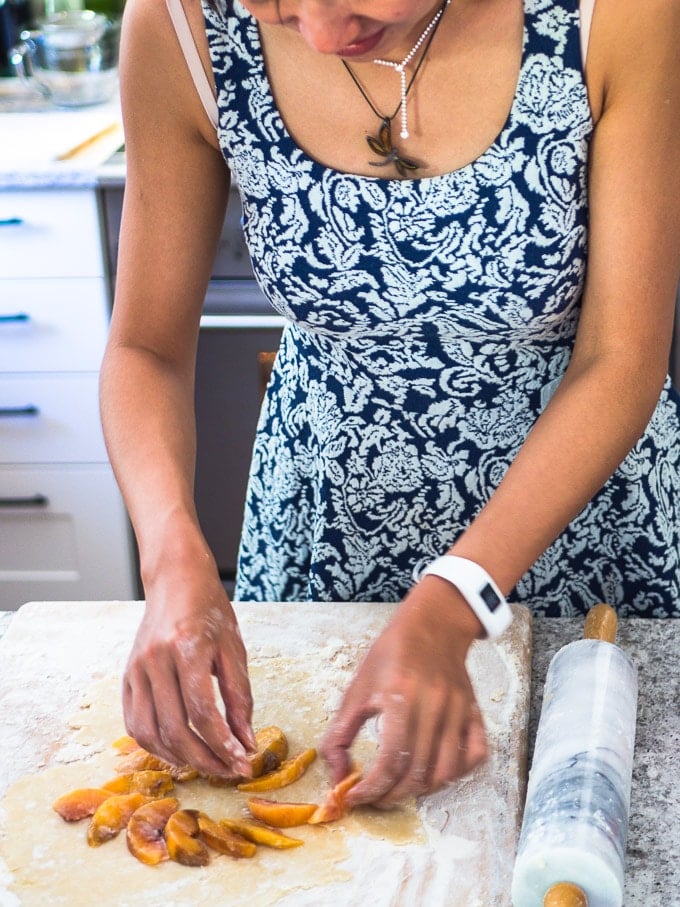
Being a personality brand doesn't work for all bloggers
I got a lot of advice about being a unique personality and a mini-celebrity in the food blogging space. "Be the face of your brand." There are a lot of successful food bloggers who succeed in building an empire by doing this. But this approach was not for me. I burned out trying to become a personality and trying to "share my story". If you're not an extrovert with a story to share and a personality to brand, you can still be successful by helping readers and adding value to the world. Add value by helping with meal planning, curating ingredients and recipes, sharing printables, and providing complex information in a digestible format. A lot of bloggers fly under the radar because they're not the loudest ones but they still have a loyal audience and a sustainable business as a result.
– Anna Rider from GarlicDelight.com who writes about kitchen experiments
Invest in quality classes
Know that any money you put in is an investment! You will see that ROI if you just put the time in! Save up for that expensive course that has received good reviews! That one course is better than 10 cheaper (lousy) courses!
– Aleka from Bite Sized Kitchen
Interested in learning about hosting online cooking classes? Check out this podcast episode with Caroline Chambers!
Up your photography skills – regularly
Poor photography. It might taste great but if your photography is dark and dingy, unless it's a super special situation in terms of a hard to find review of a specific food item, it's just not going to cut it for you recipes.
– Josephine Fan from Dear June Berry
Diversify your income
The initial attraction to blogging as a career is usually due to the lifestyle it can offer if monetized correctly. The problem is, many food bloggers fall into the "Recipe Trap". Recipes can attract TONS of traffic! But high traffic doesn't always equate to high income.
Relying on traffic means solely relying on ads, and ads usually don't pay nearly as well as affiliate marketing or product sales. Relying solely on traffic also requires you to be a content creating machine because the only way you make money is if you continue to gain monthly viewers.
This leads food bloggers to burn themselves out. They see the initial money from the traffic and think it will continue to scale at the same rate. This rarely happens. The only companies making an appreciable amount of money solely from traffic are the monster websites with huge writing staff.
– Michael from Robust Kitchen , launched in 2016
Tune into your readers
Lack of meaningful, targeted content is one of the answers to "why do food bloggers fail".
A lot of bloggers forget to specify their audience when it comes to writing posts, and they tend to lump everyone together, creating a bland and generalized blog that doesn't bring enough value to a wide enough audience. A great food blog is one that has a well defined audience for which their content is directed at.
A niche blog with 5000 faithful readers, 10% of which will purchase your recommendations are is going to be more valuable as an influencer (and for your KPI's) than a generalized blog with 10,000 one time visitors, but 1% that purchases your recommendations.
– Josephine Fan from Dear June Berry
Plan for long-term growth
I believe food blogs can fail for a number of reasons. It takes perseverance and hard work to be a food blogger. And the results are not instantaneous in my experience. Many bloggers quit when they don't see immediate results. Personally, it took me 3 years to start to see real results.
– Danielle Wolter from Went Here 8 This , launched 2017

Have fun with social media
Some people say "learn to use social media" – but I think you should learn to love social media. There is 1-2 good social media channel fits for each personality. Maybe you like building ideas and categorizing and planning – so you'll do well on Pinterest. Or maybe you're like me, and you take a million photos to share on your foodie instagram account.
Once you learn what makes a social media channel fun to participate in, and you make friends there, then you'll make the most of it and connect with cool people. I've made some good friends who love the same recipes I do. The amount of foodie friends has increased over the years as more people send me photos of their food. I've built true friendships with people over my homemade pizza recipe, for instance.
For Instagram stories, I'll share all sorts of things I'm doing during the day. Like faucets I'm considering buying for my home remodel. A vacation memory. Eggs I made for breakfast. Or step-by-step video recipes for easy sous vide dishes.
And when I post a blog, I share the news on an Instagram post and post the video on IGTV.
I stay organized so each post gets the same "love". In this post about How to qualify for Mediavine in one year , you'll learn more about my checklists to make sure I'm consistently sharing each blog post.
– Jenna Passaro from Sip Bite Go, founded in 2013 and 2020 Sous Vide Cookbook Author
Don't tackle all social media channels at once
When I first started blogging, I was told to focus on three social media channels but I chose to do them all.
I wish now, I had listened because trying to manage them all is time consuming and exhausting.
So, I say go with the three social media channels that speaks to you and if I were to go back, the three I would have chosen are Pinterest (even though it's technically not considered SM), Facebook and Twitter. The reason I picked Twitter over Instagram is although I prefer seeing all the photos on IG, it doesn't give me the traffic that Twitter does and IG changes seem to happen more (and not in a good way.)
– Elaine from Dishes Delish and the food blog podcast, Dishing with Delishes

Keep up on successful food blogging trends
I've been blogging since 2010, and back then, no one was teaching people how to blog. A lot of it, I had to learn over the years.. Studying is the key to creating a successful food blog. It doesn't matter if you're an OG blogger like me or a newbie on the blogging street, you have to study everything from how to effectively use social media, current trends, SEO, both image and video creation, etc. The changes are never-ending. It's not just about creating pretty pictures, and it can feel overwhelming at times.
On top of that, there's a lot of competition. My advice to future food bloggers is: before even buying the domain, reach out to a food blogger you like and ask to help them. Even something small like scheduling on Facebook will give you an insight into our world. One last tip: niche down. I am a Mexican food blogger. It was easiest for me because I am Mexican. Find that one thing you're BEST at and create a blog around that.
– Maggie Unzueta from In Mama Maggie's Kitchen
Share recipes people want to make and eat
Some food bloggers think that to be successful, they need to produce that rare dish that is the next fashion food. What most readers need is that quick chicken dish or that Christmas cookie or how to bake a famous dish. You don't need to re-invent the wheel. Start with recipes that people are searching for. While it might be hard to rank in Google initially, you can still promote in Pinterest or social media.
Add your twist to make the recipe your own but don't go for the super rare stuff.- Blogging and especially food blogging is hard work. A lot of bloggers don't even see a penny for the first year or two. This job is fueled by passion before it turns into a profitable business. I often see in blogging Facebook groups several posts from disappointed bloggers on why their traffic numbers aren't higher 6 months in. There are few success stories that make the news and magazine covers in a short period of time, but for most bloggers is a long process. This is not a get rich quick business.
Be consistent & patient and hopefully it will pay off.- A lot of bloggers treat their blogs as a diary. Our posts should address everything that readers want to know about, how can I double this recipe?, can I cook it in the stovetop instead of instant pot or vice versa? Can I substitute these ingredients etc etc. While adding a little personal story it makes you as a blogger more relatable, the whole blog post shouldn't be about you but instead focused on the reader.
– Sonila from Mediterranean Latin Love Affair , founded in 2018
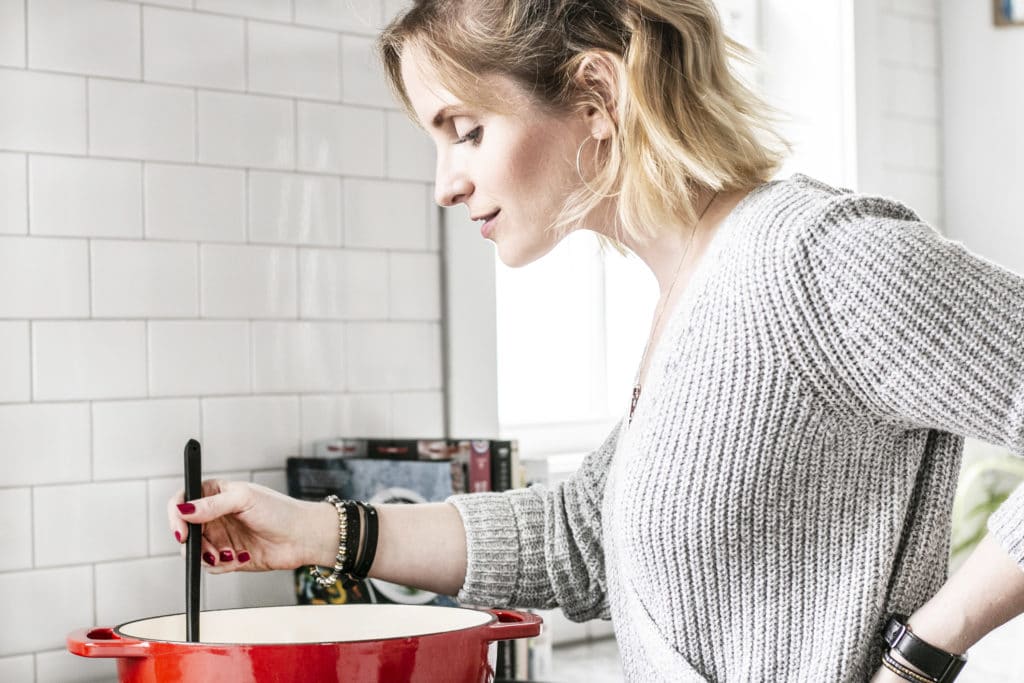
Create food blog posts people actually want to read
Something I see quite often with new bloggers is that they think there is a set of "rules" or a formula for SEO or social media that guarantees success. They say, "I'm doing everything right, but I'm not growing!" but the one "rule" they're forgetting is to create content that people actually want. If your content is not gaining traction, take a hard, objective look at what you're creating and what your audience actually wants and needs.
Start there, not with algorithm hacks. Create good content and you'll grow naturally. (Of course there are "best practices" for SEO and social media that should not be ignored, but they do not in any way guarantee success.)
– Beth from Budget Bytes , founded in 2009
Want to start food blogging full time? Get tips from the Budget Bytes food blogger, Beth Moncel who changed careers to pursue the food blog business.
Don't limit yourself on recipe titles and keywords
Although experts are awesome and give great advice, you also have to go with your gut. Here is an example, I was told to pick keywords that had around 6,000 – 12,000 searches per month. But since I write about cocktails as well as food, if I had listened, I wouldn't have had the success I've had with them. And a few of my cocktails have gone viral even when they had under 1000 keyword searches per month. So, although it's good to listen to what the experts have to say, it's also okay to deviate if you have a strong feeling about it.
– Elaine from Dishes Delish and the food blog podcast, Dishing with Delishes

Treat food blogging as a business
As someone who almost deleted their blog in May 2017, I can tell you why my blog almost ended. I had no education when it came to food blogging and was spinning my wheels for YEARS and couldn't figure out why there was no growth.
You also see these huge blogs and many of them never talk about how difficult it is to run a business. Coming into it, you think "I'll take a few photos, write a recipe, and BOOM, I'll be famous".
Many of the established blogs started when it was very simple to start a blog and there wasn't a ton of competition. You could write a 500-word story about how you went apple picking with your family and it would go viral (early days of Pinterest).
No one tells you that you have to be an incredible photographer, you need to be a social media manager, videographer, tech genius, your own PR company, and email marketing genius.
New bloggers are not prepared for how you have to be everything to everyone and then no matter how hard you work, people are going to be nasty online. It's a shock to the system and if you don't truly love it, you'll quit. Never have I worked so hard to make so little money.
How to combat all of these things: go into blogging with open eyes. You're not going to be an overnight success. Join educational facebook groups or blogging communities. Talk to other bloggers. And determine if you are willing to do this simply because you love it.
– Sarah from Sustainable Cooks
Hear more from Sarah and how she got into food blogging about sustainable living.
Now, use this advice…
Are you an up and coming food blogger? There comes a point you need to put a plan into action. Especially if you have a goal, like qualifying for Mediavine in one year.
If you're reading this post and have a food blog, now is the time! Find the perfect niche for you and your readers' interests. Offer your readers outstanding pictures and recipes they'll want to make again and again. And be prepared to wait it out a bit. Patience is key.
Wondering how to food blog as a new mom? See how these food bloggers accomplished writing a cookbook and food blogging while pregnant during the pandemic.
Have more tips for food bloggers to succeed?
This post is always accepting more ideas! Share insight or ask questions in the comments.
How Often To Post New Recipes On Food Blog
Source: https://sipbitego.com/why-food-blogs-fail-plus-tips/
Posted by: baileyclinguen1988.blogspot.com

0 Response to "How Often To Post New Recipes On Food Blog"
Post a Comment